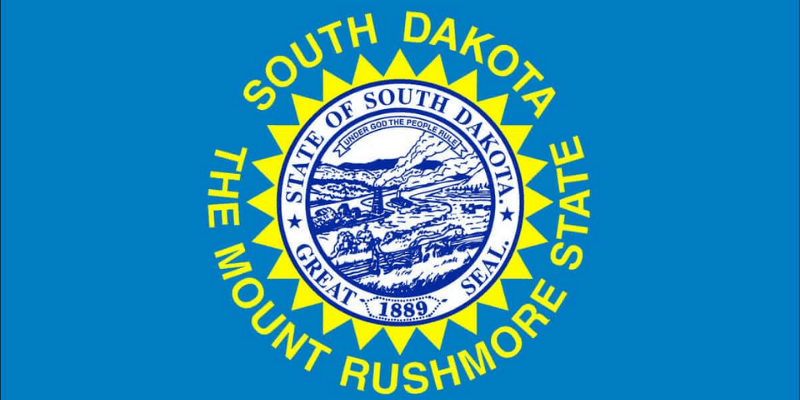Estimated reading time: 4 minutes
Table of contents
- What’s on the Ballot?
- Key Features of Amendment A
- What Does Measure 26 Offer?
- A Unique Opportunity for Cannabis Entrepreneurs
- The Economic Impact
- Take the Next Step
- Additional Resources
- Consulting Services For Cannabis, Hemp, Psilocybin, and Natural Medicine
- Testimonials and Public Relations
- Latest Articles
- Explore Our Articles
- Free Ebook – Start Your Own Legal Cannabis Business
The upcoming vote on November 3, 2020, may open the door for a South Dakota Cannabis License. This historic event marks the first time a state will simultaneously vote on both medical and adult-use cannabis legalization. By doing so, South Dakota is positioning itself as a progressive leader in marijuana reform.
What’s on the Ballot?
South Dakota voters will decide on two measures: Amendment A and Measure 26. Each requires a majority vote to pass.
Amendment A: This amendment to the South Dakota Constitution would legalize, regulate, and tax marijuana for adult use. It allows adults aged 21 and older to possess up to one ounce of marijuana and, under specific conditions, grow marijuana plants at home. Additionally, it grants the State Department of Revenue authority to issue licenses for cannabis businesses, including cultivators, manufacturers, and retailers. Local governments may regulate or ban such establishments within their jurisdictions.
Measure 26: This initiative establishes a medical marijuana program for qualifying patients, including minors. The measure takes a less restrictive approach, defining qualifying conditions broadly to ensure patients in need have access to medical cannabis. Patients could possess up to three ounces of marijuana or the amount prescribed by a physician. Non-resident medical patients with valid registration cards could also purchase cannabis in South Dakota.
Key Features of Amendment A
If passed, Amendment A would bring several changes to South Dakota:
Legalization of possession, use, transport, and distribution of marijuana for adults 21 and older.
Home cultivation of marijuana plants under certain conditions.
State-regulated licensing for cannabis businesses.
Revenue generation through application fees, licensing fees, and a 15% excise tax.
Revenue collected would fund the program’s implementation. Any surplus would be split between public schools and the state general fund. By 2023, projected tax revenues could reach nearly $20 million annually.
What Does Measure 26 Offer?
Measure 26 focuses on medical cannabis accessibility. Key provisions include:
Broad definitions of debilitating medical conditions to cover a wide range of patient needs.
Allowing home cultivation of cannabis plants for registered patients.
Enabling non-resident medical marijuana patients to access South Dakota dispensaries.
This inclusive approach ensures that all patients who could benefit from medical cannabis have safe and legal access.
A Unique Opportunity for Cannabis Entrepreneurs
Most states have introduced medical cannabis programs before expanding to adult-use legalization. South Dakota’s simultaneous approach could create immediate opportunities for cannabis business entrepreneurs. If Amendment A passes, the state will issue licenses to qualified applicants, paving the way for a thriving cannabis industry. This new sector will bring essential jobs and exciting career opportunities to the state.
The Economic Impact
The financial benefits of legalization are significant. Initial projections suggest the state could generate over $355,000 in net revenue in 2021. By 2023, this figure is expected to approach $20 million. These funds will support schools and the state’s general fund, providing a much-needed economic boost.
Take the Next Step
The passage of Amendment A or Measure 26 will lay the foundation for a booming industry in South Dakota. If you’re interested in applying for a South Dakota Cannabis License, contact us today to learn more.
Additional Resources
Consulting Services For Cannabis, Hemp, Psilocybin, and Natural Medicine
- Consulting Services Overview
- Business Strategy
- Financial Planning
- Cannabis, Hemp, Psilocybin, & Natural Medicine Licensing and Applications
- Facility Design
- StartUp Support
- Genetic Development
- Business Turnaround
- Operational Optimization
- Vertical Farming
- Controlled Environmental Agriculture (CEA)
- State and Country Services Directory
- Blog
- Home
Testimonials and Public Relations
Latest Articles
- Missouri Cannabis Licensing & Business Opportunities 2026Missouri has established itself as the premier success story for cannabis in the Midwest, evolving from a standard medical regime to a high-volume adult-use market that exceeded $1.52 billion in annual sales in 2025. As the market enters the 2026–2027 biennium, the landscape is shifting from rapid expansion toward operational maturation and specialized entry.
- North Carolina Cannabis Licensing & Business Opportunities 2026North Carolina remains one of the final significant jurisdictions in the United States without a comprehensive medical or adult-use cannabis program. However, the 2026–2027 biennium is projected to be the most consequential period in the state’s cannabis history. Driven by the formation of the North Carolina Advisory Council on Cannabis and an impending federal “hemp cliff,” the state is moving from a period of passive prohibition toward a structured, albeit highly restrictive, regulatory framework.
- Nebraska Cannabis Licensing & Business Opportunities 2026Nebraska is entering the 2026–2027 biennium at a historic crossroads. Following the 71% voter approval of Initiatives 437 and 438 in late 2024—the largest margin for a medical cannabis initiative in U.S. history—the state is currently standing up its first regulated medical infrastructure.
- Florida Cannabis Licensing & Business Opportunities 2026Florida represents the most capital-intensive and professionally structured cannabis market in the nation. As of 2026, the state is at a crossroads: it is both expanding its mature medical program and preparing for a potential constitutional shift toward universal adult-use access. On November 3, 2026, Florida voters will decide on the Marijuana Legalization Initiative (Amendment 3). Passing this requires a 60% supermajority—a high threshold, but one that polls suggest is within reach.
- Virginia Cannabis Licensing & Business Opportunities 2026As Virginia transitions from its current “possession-only” model toward a fully regulated retail market, the 2026–2027 biennium represents a once-in-a-generation window for market entry. Unlike the vertically integrated “medical-only” regimes of the past, Virginia’s upcoming framework focuses on decentralization, specifically architected to favor small Virginia-based operators over large multi-state corporations.
- Minnesota Cannabis Licensing & Business Opportunities 2026Minnesota is currently undergoing a transformative shift in its cannabis landscape, moving from a semi-regulated hemp-derived market toward a fully comprehensive adult-use framework. Overseen by the Office of Cannabis Management (OCM), the 2026–2027 biennium represents the critical “enforcement phase” where temporary registrations sunset and permanent, merit-based licenses define the market’s long-term leaders.
Explore Our Articles
cannabis applications Cannabis Bar Cannabis Business Optmization cannabis careers Cannabis Compliance Cannabis Consumption Cannabis Consumption Bar Cannabis Inventory Management Systems Cannabis Investors cannabis jobs Cannabis Legalization cannabis licensing Cannabis Lounge cannabis marketing Cannabis Operational Procedures cannabis outreach Cannabis Regulations Cannabis Security Cannabis Software Cannabis Startup Cannabis Supply Chain Cannabis Technology Colorado controlled environment agriculture Cultivation cultivation facility Dispensary Design facility design Financial Planning HVAC HVACD Iowa Kansas Legal Update Legislation Medical Cannabis Minnesota Natural Medicine Nebraska New York Odor Control Oregon Psilocybin Psychedelics Recreational Cannabis
Free Ebook – Start Your Own Legal Cannabis Business








